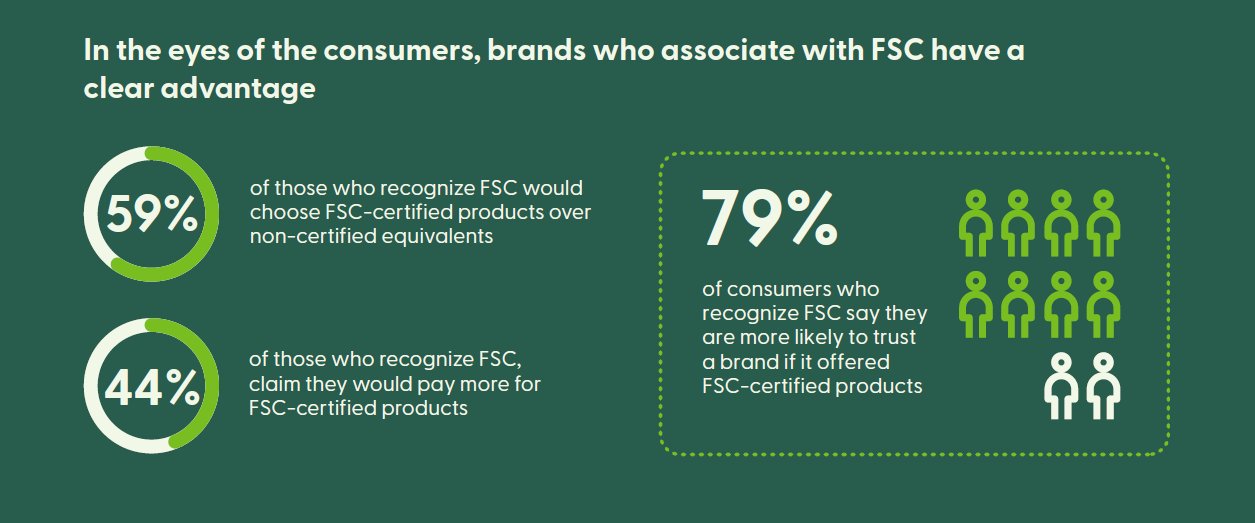Insights from the UK
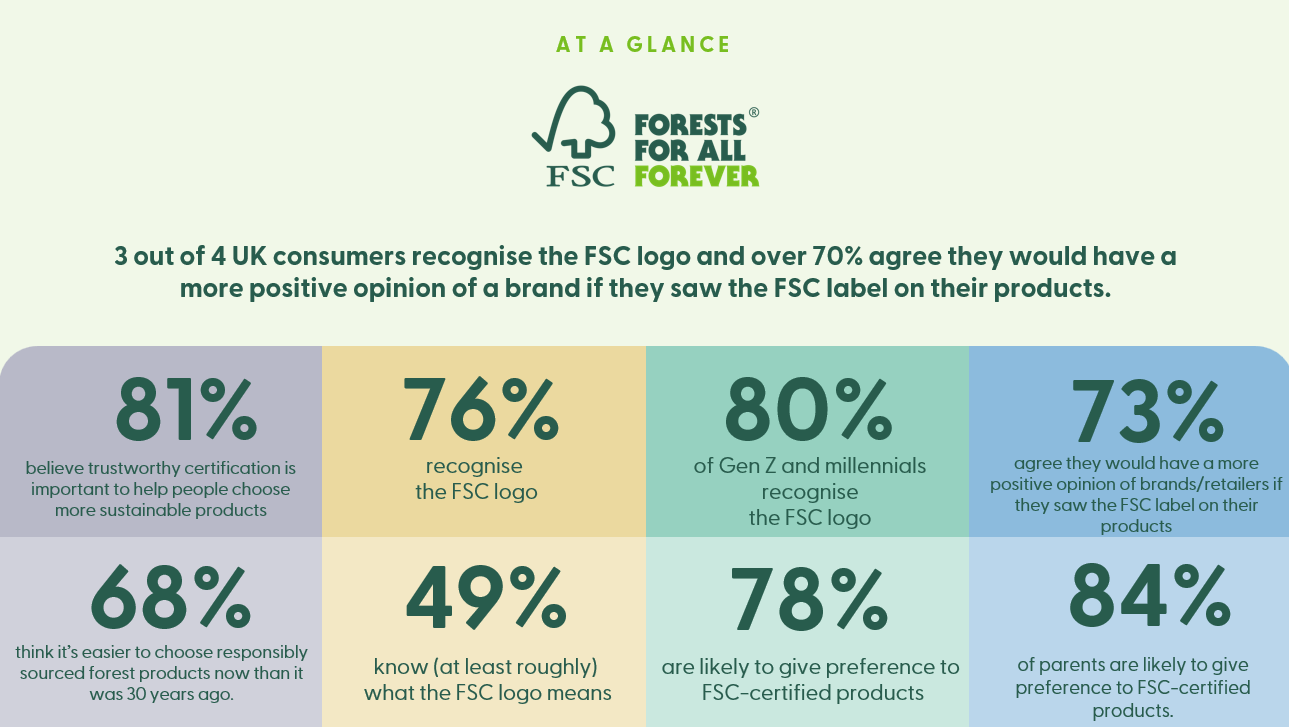
FSC UK's 2025 survey has revealed that 76% of respondents recognise the FSC logo; 24% are confident they know what the FSC logo means, and a further 25% say they know roughly what it means.
Recognition and understanding of the FSC logo tends to be higher amongst the younger generations with 77% of Gen X, 80% of millennials and 80% of Gen Z recognising the tick-tree; 58% of millennials, and 55% of Gen Z, also say they know (at least roughly) what the FSC logo means.
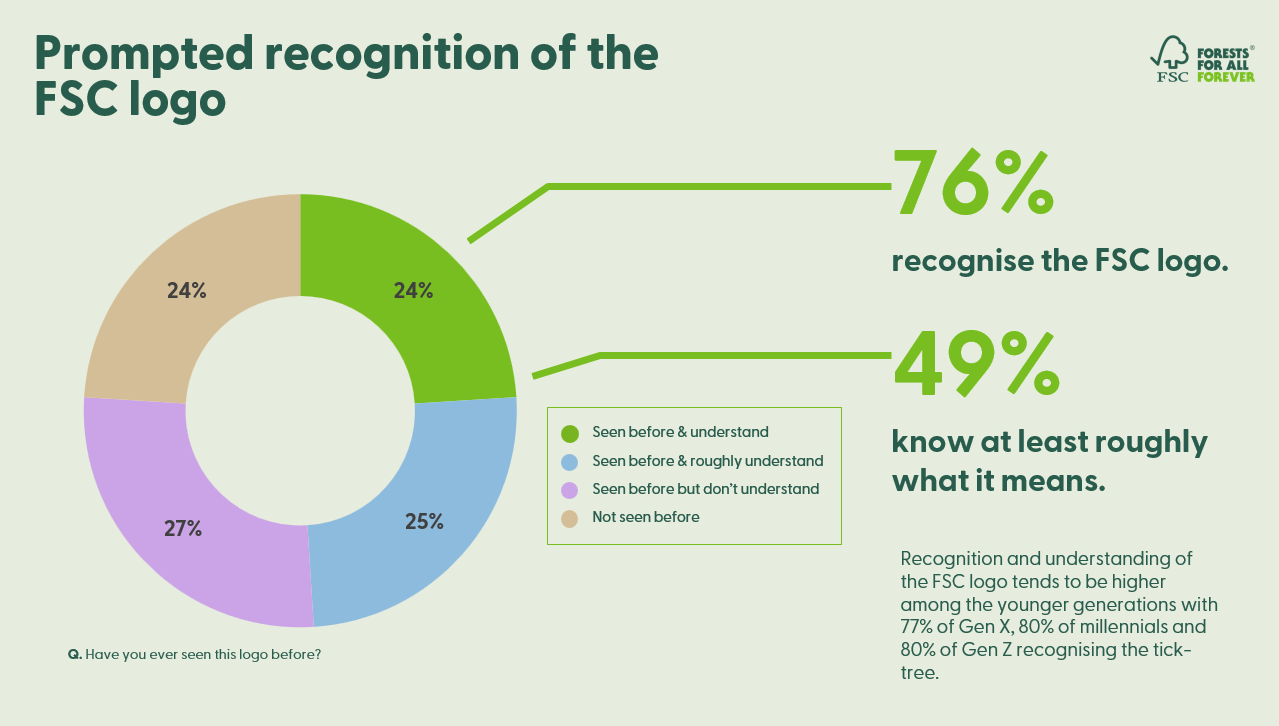
Brand Reputation
73% of UK consumers agree that they would have a more positive opinion of a brand or retailer if they saw the FSC label on their products. Generationally, this figure is highest amongst 16-24 year olds and 25-34 years olds, with 77% of both age groups positively influenced by the availability of FSC-certified products.
78% of people say they are likely to give preference to FSC-certified products. Preference for FSC-certified products is highest amongst millennials at 83%. 8 in 10 believe trustworthy certification is important to help people choose more sustainable products.
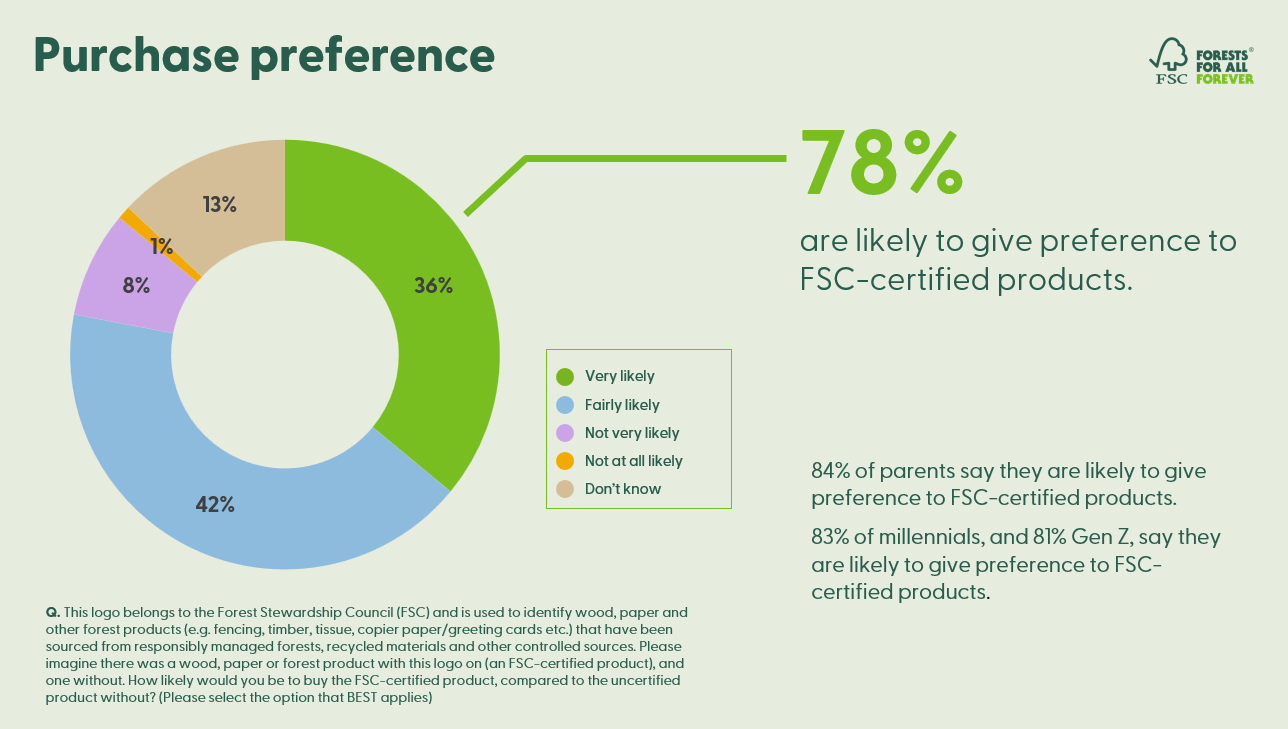
FSC UK Consumer Survey 2025, conducted 20/03/2025 - 24/03/2025 by Kantar (1,279 adults in United Kingdom aged 16+)
Awareness and understanding of the FSC logo over the years
Awareness of the FSC logo has increased by 57% since we first starting conducting surveys.
“It is positive that recognition of the FSC logo remains high in the UK, as it can be nigh on impossible to tell just by looking at a piece of furniture, or a greeting card, where that wood used originally came from. But if the product has an FSC label, it means it is made with materials that support responsible forestry.”
- Rosie Teasdale, Executive Director, FSC UK
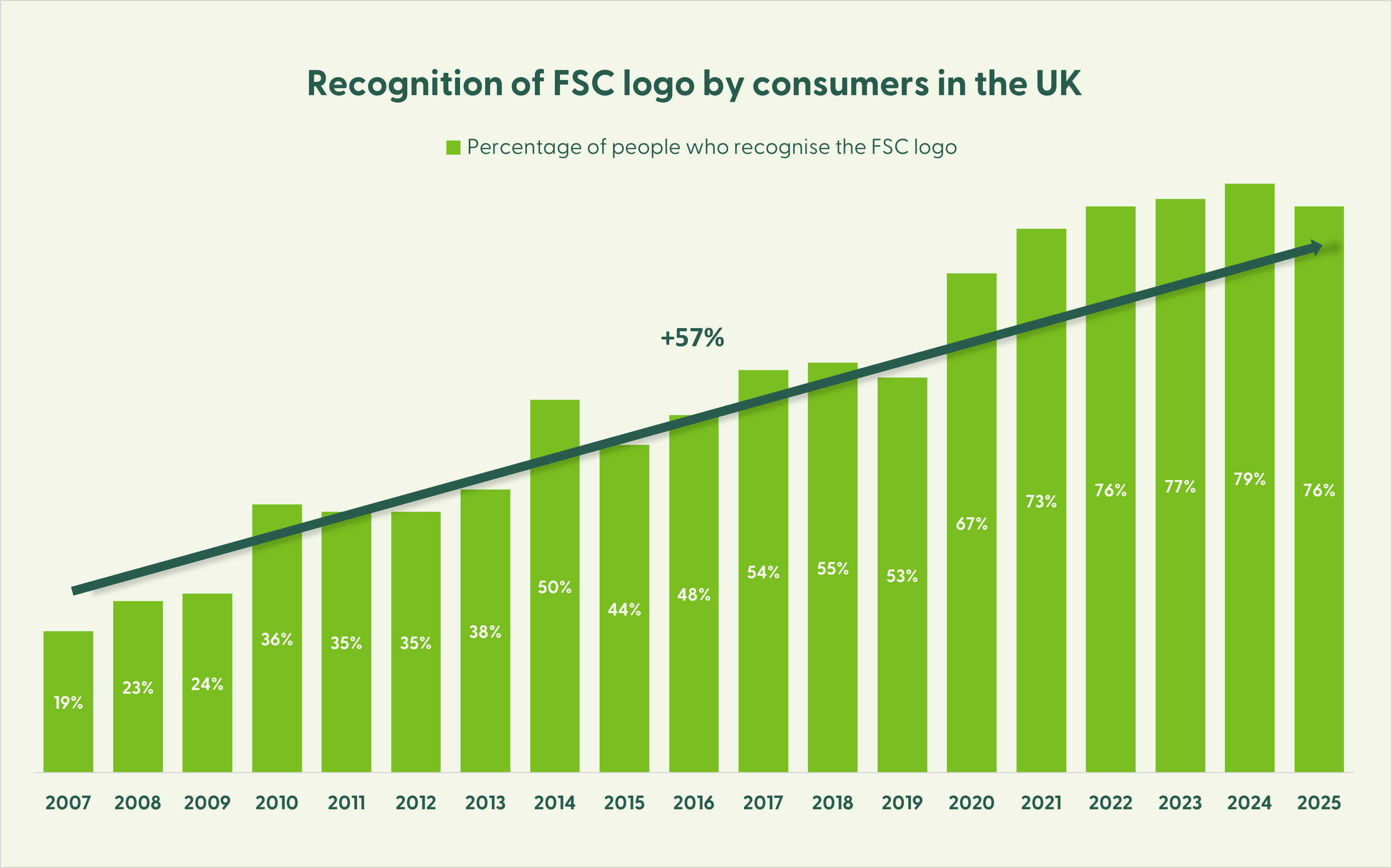
Understanding of what the FSC logo means has also increased since we first started recording this in 2017, with 24% saying they know what it means in 2024 (+ 14% on 2017), and a further 25% (+13% on 2017) saying they know roughly what it means.
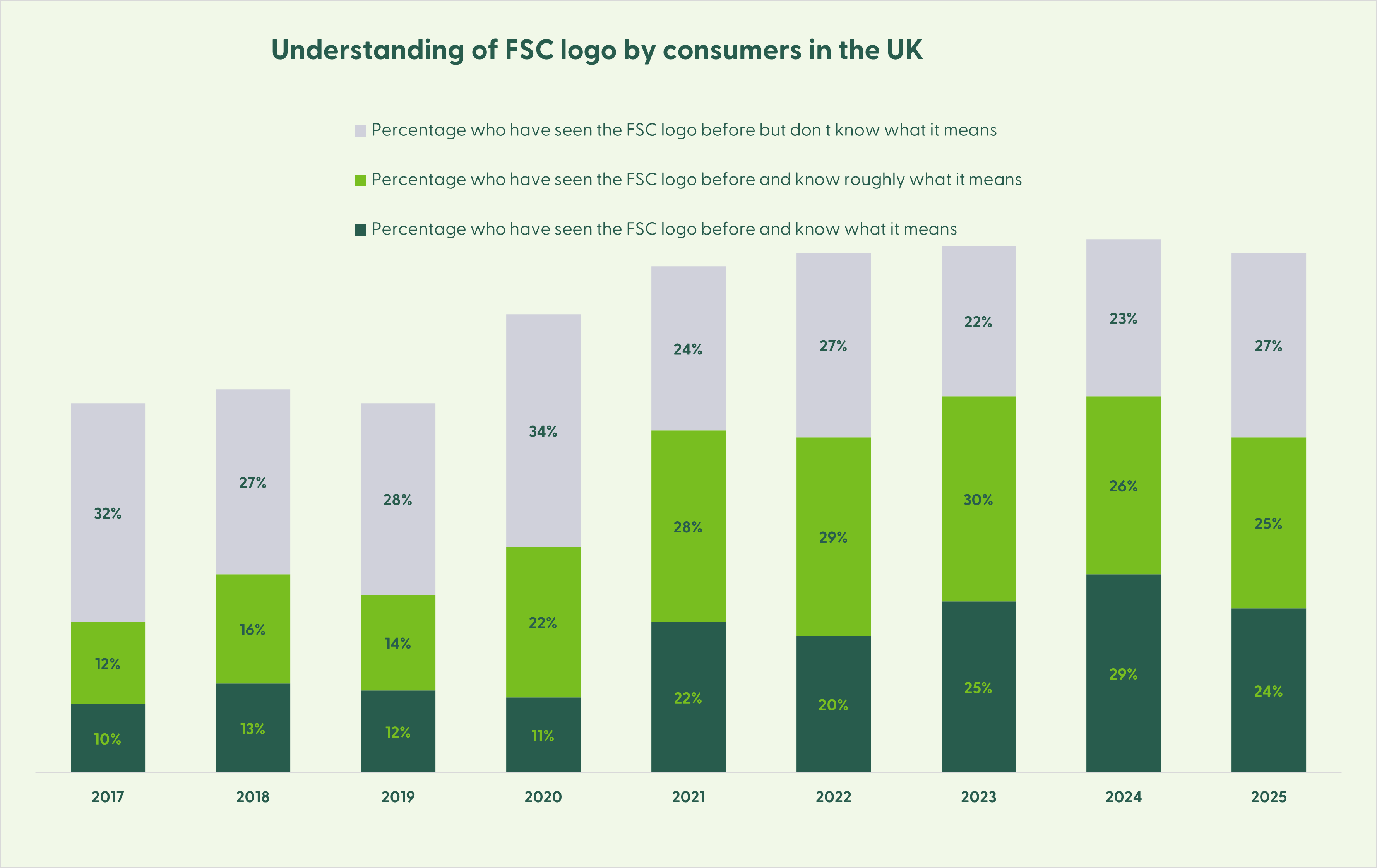
You can view the results from our previous UK consumer surveys here.
Global consumer awareness
FSC's 2025 global consumer research revealed rising consumer concerns about war, health, and economic uncertainty – while highlighting their eco-conscious actions to combat climate change.
A new global study commissioned by FSC with Ipsos is one of the largest of its kind, surveying 40,802 consumers in 50 countries. It provides new insights into what consumers are concerned about, who they trust to address these concerns, and how they’re acting individually through their purchases to affect change.
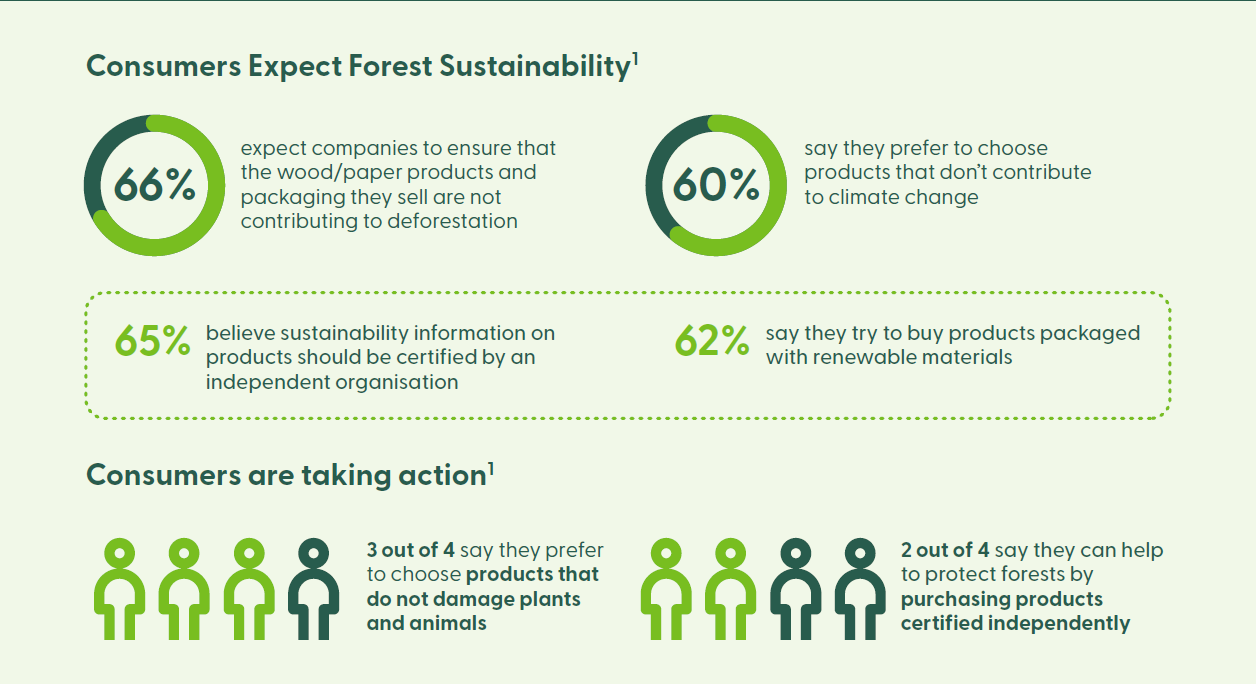
The survey found that FSC is the most recognised forest certification system and that 79% of consumer who recognise FSC say they are more likely to trust a brand if it offered FSC-certified products.
